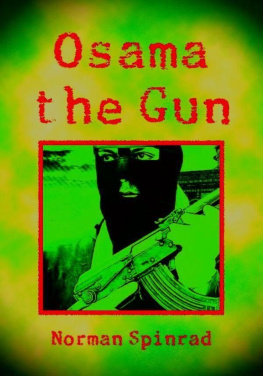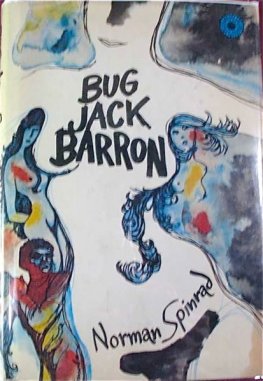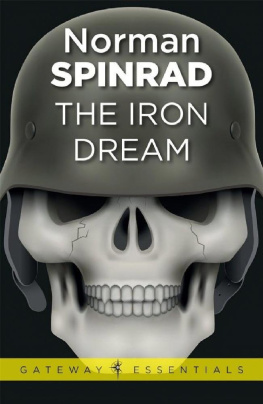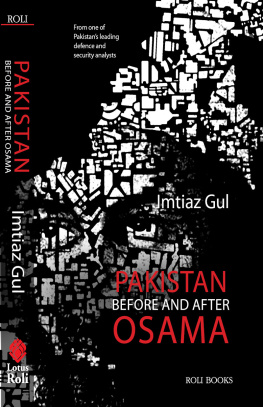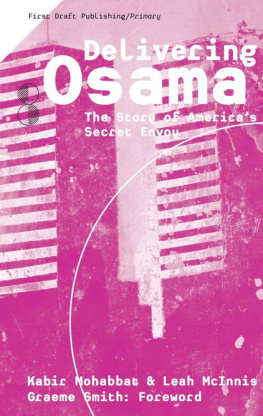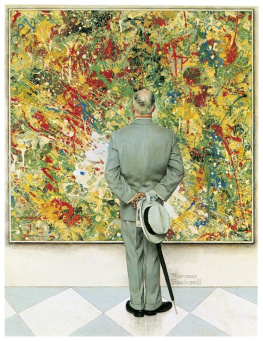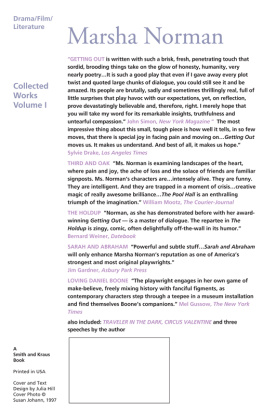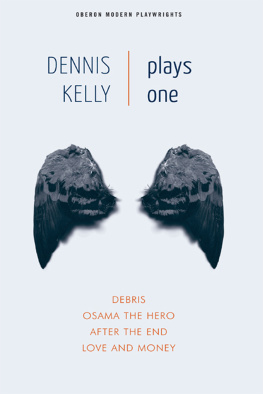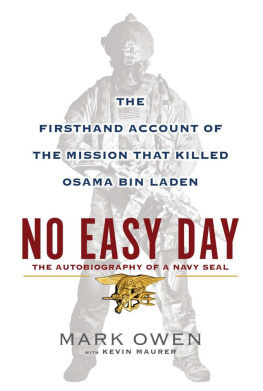Norman Spinrad - Osama the Gun
Here you can read online Norman Spinrad - Osama the Gun full text of the book (entire story) in english for free. Download pdf and epub, get meaning, cover and reviews about this ebook. year: 0, genre: Detective and thriller. Description of the work, (preface) as well as reviews are available. Best literature library LitArk.com created for fans of good reading and offers a wide selection of genres:
Romance novel
Science fiction
Adventure
Detective
Science
History
Home and family
Prose
Art
Politics
Computer
Non-fiction
Religion
Business
Children
Humor
Choose a favorite category and find really read worthwhile books. Enjoy immersion in the world of imagination, feel the emotions of the characters or learn something new for yourself, make an fascinating discovery.
- Book:Osama the Gun
- Author:
- Genre:
- Year:0
- Rating:5 / 5
- Favourites:Add to favourites
- Your mark:
- 100
- 1
- 2
- 3
- 4
- 5
Osama the Gun: summary, description and annotation
We offer to read an annotation, description, summary or preface (depends on what the author of the book "Osama the Gun" wrote himself). If you haven't found the necessary information about the book — write in the comments, we will try to find it.
Osama the Gun — read online for free the complete book (whole text) full work
Below is the text of the book, divided by pages. System saving the place of the last page read, allows you to conveniently read the book "Osama the Gun" online for free, without having to search again every time where you left off. Put a bookmark, and you can go to the page where you finished reading at any time.
Font size:
Interval:
Bookmark:

OSAMA THE GUN
by Norman Spinrad
Like millions of other Muslim boys in the Califate and beyond, I was given the name Osama in honor of both Osama bin Laden and the Sons of Osama which gave it birth, but I will say no more to protect my family, save that I was born into circumstances of ease and deprivation. As a boy, I received a proper Muslim education in one of the best madrasses, but I was deprived of knowledge of the wider world beyond the borders of the Califate.
The Califate sought to preserve the righteous purity of the kingdom which Allah had placed in its charge by maintaining ignorant innocence. Satellite television receivers were forbidden, western films were forbidden, Western music was forbidden, and when the Sons of Osama seized power in Saudi Arabia and Pakistan, re-established the Califate, and spread its rule to poorer Muslim lands beyond, guest workers from the lands of the Godless were no longer needed, easily enough replaced by righteous but indigent Pakistanis and Egyptians. What few westerners were allowed inside its borders for necessary purposes were confined to a rigid purdah. Visas to travel outside the Califate were made difficult to obtain.
But forbidden fruit seems all the sweeter.
In the Golden Age of the first Califate, when it was a simple matter of closing land borders and forbidding foreigners from setting foot on sacred soil, such a policy was enforceable, was wise, but in what the ungodly call the modern globalized era, such a policy was self-defeating.
Radios the size of cigarettes packages were available in the souks for next to nothing. Western films and music stored on chips the size of a thumbnail fell from the skies like rain. Efforts to maintain perfect firewalls around the censored interior Califate Internet were futile. Illegal satellite antenna balloons were far from uncommon and mighty broadcast satellites, far out in geosyncronous orbit blasted out pornography, propaganda, and advertising. The electronic rantings of priests and evangelists and rabbis were easy for the Faithful to ignore but the entertainment and advertising were created to appeal to the base desires that lurk within even the most righteous Muslim by powerful djins of these black arts of seduction.
And no more so than to innocent adolescent Muslim boys. I knew nothing at the time of the life and ways of the millions of young male Muslim adolescents in the poor lands outside Saudi Arabia and the Emirates, in teeming Cairo and Baghdad and Damascus, and only later did I learn that though far harsher, their boyhoods had been freer than mine.
Freer to be tempted and seduced, for in the great souks of the crowded cities where the hands of the religious police could hardly be everywhere, the film and music chips were as available as hashish and heroin and alcohol and just as addictive. Particularly the pornography. Images of seductively nubile women, not merely whose faces went unveiled, but whose breasts and even pudenda were exposed. Music that sang openly of the pleasures of the most perverse and obscene sexual acts. Advertisements for western flesh-pots, aphrodisiacs, penile enhancements, masterbatory robots. All appealing to boys who burned with sexual frustration.
Not that boys in the Caliphate did not.
Islam teaches that sexual passions must be controlled by the will of righteousness and their fulfillment postponed until marriage, which is perhaps why Allah, in his beneficence and mercy, allows the Muslim male the privilege of four wives to look forward to.
For those who can afford them. But for every man who enjoys four wives, there must be three who go without any. For them, there is only the promise of orgasmic bliss in paradise after a virtuous death. Which in the films and music of the West is readily available in the here and the now, if hardly in the arms of seventy-two virgins.
Yes, adolescents in the poor provinces of the Caliphate were freer than I in their boyhoods. Freer to be washed over by temptation. Freer to suffer even more intense frustration. But even in the Caliphate, the forbidden fruit was more circumspectly available to send the poisons of adolescent passion surging through our arteries to engorge our frustrated desires.
Film and music chips would pass secretly from hand to hand to be viewed and heard mostly in solitude, but from time to time small groups of us would be gather to indulge in such entertainment collectively, and what else might have occurred must be left to the impure imagination.
Suffice it to say, that like many of my boyhood companions, my secret dream was to taste the forbidden fruits so readily available beyond the closed world of the Califate. But unlike most, by the time I was sixteen, had formulated a plan to allow me to do so. I made myself into the most righteous of the righteous and the most diligent of students in the madrass. Both were necessary to be among the few to be admitted to the foreign service academy, for only the most promising students and unquestionably righteous and loyal Muslims had any chance of being selected.
Yes, the Califate maintained a foreign service of sorts and embassies in Europe and even America. For there must be commerce with the Great Satan America and its vassals, mostly in the form of the export of our petroleum without which their economies could not function, and the import of their surplus food, without which our overpopulated lands lands would suffer famine, and foreign representatives must be granted exit visas to negotiate and oversee such trade.
Or so I had believed when I entered the academy. But once enrolled, I soon learned that there was more to it than that. We all studied foreign languages, I English and French, economics, and the art of bargaining. But there was an inner school for which only the most loyal of the loyal were selected.
To be trained as spies and secret agents.
I was determined to be one of them, for the western films portrayed the secret agent, particularly the Califate agent, as a well-subsidized playboy surrounded by sexually available women, and often constrained to seduce them in the line of duty, while secretly remaining the most loyal Muslim agent of the evil Califate. A perfect life that uniquely combined pleasure with moral righteousness, enduring the flesh-pots of the west in the service of Islam. Such was the fantasy of the Islamic innocent, insinuated into my boyish soul by the minions of Satan.
There was an entrance test. Only a select few were offered the test and how we were selected was kept secret from us. We were told that we could accept or refuse the test without blame, but not what it would be. Of course curiosity if nothing else, and in my imagination, there was much else, prevented me from refusing when the test was offered to me.
#
I was packed into a helicopter and flown to the outskirts of a small town whose name I was not told. I was given the location of a stand in the souk where coffee was sold and a photograph of the merchant. I was told that this man was committing offenses against the Califate.
I was not told what they were, only that the punishment decreed was death, and I was handed a small pistol, and ordered to perform the clandestine execution. The pistol fired darts of ice encapsulating a neurotoxin that would enter the target's circulatory system and simulate a fatal stroke once the ice melted. I was not told why a public beheading was not in order, nor what would happen to me if I failed to carry out my mission.
Trembling with anticipation, moral qualms, and dread, I made my way to the modest souk at the center of the town, and found the coffee seller's stand. It was a plain opened-sided tent with a plank over two splintery gray sawhorses before it holding large brass platters of roasted coffee beans with wooden barrels of more within.
Font size:
Interval:
Bookmark:
Similar books «Osama the Gun»
Look at similar books to Osama the Gun. We have selected literature similar in name and meaning in the hope of providing readers with more options to find new, interesting, not yet read works.
Discussion, reviews of the book Osama the Gun and just readers' own opinions. Leave your comments, write what you think about the work, its meaning or the main characters. Specify what exactly you liked and what you didn't like, and why you think so.

